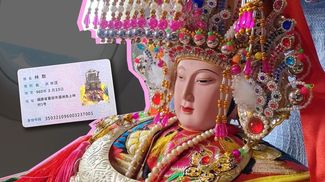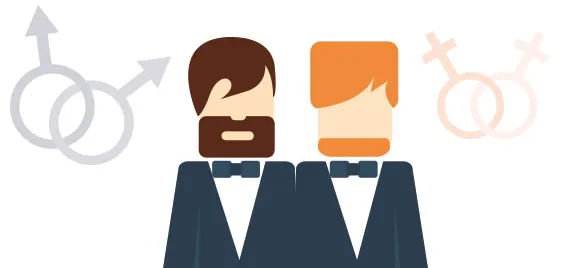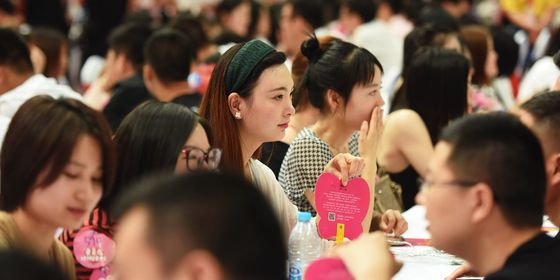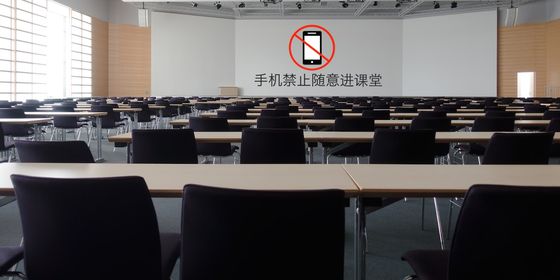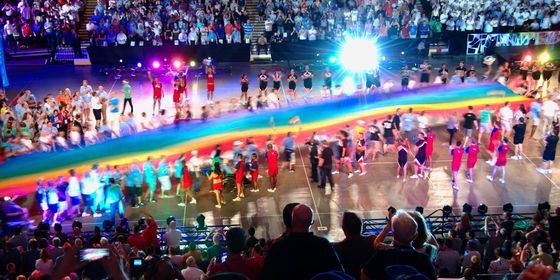Cautious strides for China’s gay and lesbian community in recent decades
On July 5, Li Maizi and her girlfriend Teresa Xu got married. It wasn’t a large event, it had just a few dozen guests in attendance at the Beijing restaurant venue.
Li’s parents were not present.
The ceremony was not formally recognized by law, much like the charges brought against Li and four other women three months earlier, which included “picking quarrels” and “provoking trouble” for her feminist activism. Her crime was protesting against domestic violence against women. In the end she was released without charge, but with no guarantees she would not be rounded up again.
When the US Supreme Court announced in June that gay marriage would be legal in all 50 US states, the jubilation reached as far as China, where achieving equality for same-sex couples has long been low on the government’s “to-do” list.
There have been some positive strides; in 1997 homosexuality was decriminalized, and by the end of 2001 it had been removed from China’s list of mental illnesses. But this progress hasn’t completely filtered through society. Not only does much of China—particularly the countryside—misunderstand homosexuality, the stances of official bodies remain confused and contradictory. As an example, in August of 2015, a university student in Guangzhou brought a legal case against the Ministry of Education after she found that all the books in her university library still categorized homosexuality as a mental illness, 14 years after it had been declassified as such. The student contacted the ministry in regard to the issue but received no response and so took up the legal case.
Most of the problems are related to public attitudes. A 2013 Pew Research Survey found that just 21 percent of China’s population thought “society should accept homosexuality” with 57 percent opposed and the remainder undecided.
Most of China’s gay population stays in the closet, with many marrying people of the opposite sex to hide their sexual orientation.
There are some glimmers of hope for the gay and lesbian community, however, as evidenced by the relative success of Guangdong-based NGO PFLAG (Parents, Families and Friends of Lesbians and Gays), which was established in 2008.
“Before 2003, no parents publicly supported their gay children. But since then, things have been getting better and better and many parents changed their attitudes,” PFLAG co-founder Hu Zhijun says. “Our hotlines received a lot of consulting calls from parents, and more and more parents accepted this ‘coming out’ thing.”
PFLAG essentially helps the parents of gays and lesbians accept their children’s sexuality, which can be a difficult task given the fact many parents believe they will be ostracized because of it. Hu says that most of the time they achieve a positive result, but some parents simply will not be swayed.
“I remember I answered a call from a father who was forced by his gay son to call us. Without listening to me, the father kept cursing us, saying…it was just because of people like [us], that [his] son learned bad things,” Hu says.“I also met a parent who claimed she would call the police.”
Hu points out that some parents who contacted PFLAG ended up going public to try to help other parents understand. “I can remember an article written by Honghu Mama, whose son came out to her more than 10 years ago. It took her many years to accept it. She wrote that when she first knew her son was gay, she shouted at him, ‘You are going to ruin yourself, ruin our family,’ and she hoped to change her son,” Hu revealed by phone. “And when she went to a therapist, he advised her to report her son’s boyfriend to his school, then the boy would leave her son. She was very depressed. Then one day she met an old friend, whose son experienced a car accident and was paralyzed in bed. Looking at her heart-broken friend, she realized she was lucky to have a healthy son. Then she gradually accepted his sexuality.”
Acceptance of gays and lesbians remains far more stunted in rural areas where homosexuality is usually either misunderstood or frowned upon. In some cases, misguided parents even organize exorcism rituals, as occurred for Hebei farmer Yebin in 2004. Over the following decade he and his family gradually came to terms with his sexual orientation. In 2011 he met his partner Anwei online and they moved to be together. They had the courage to tackle village gossip head-on and explain their lifestyle to villagers, but for most homosexuals in the countryside this remains unthinkable.
For all the progress of the last few decades, sometimes it seems like little has changed. In an article published in the Baltimore Sun almost exactly 20 years before Li tied the knot, a correspondent in China profiled some gay and lesbian activists in the capital city, including Wan Yanhai. The words ring true as much today as they did back then. “Some headway China’s gays have not gotten so far is to lobby the government for a change in laws—such as allowing gays to serve in the military or legalizing homosexual marriages—but Wan and a loose network of about 50 other activists in Beijing have made headway on several projects,” said the article, published on June 21, 1995. “Their work includes handing out literature on AIDS prevention, counseling gays who meet in parks, conducting opinion polls and writing up their research for health publications.”
“Below the Gaydar” is a story from our newest issue, “Military”. To continue reading, become a subscriber and receive the full magazine. Alternatively, you can purchase the digital version from the iTunes Store.

